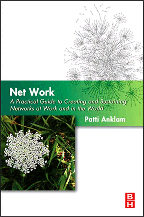Collaboration flattens the world
Thomas Friedman’s new book, The World is Flat, has just been published. I’ve admired his analysis for many years, as he is one of those people who can help us make sense of large global political and economic trends. I haven’t read the book (yet) but was pointed to this article in the NY Times Magazine (Sunday, April 3) by colleagues.
By flattening in the economic sense, he means of course that the “playing field has been leveled” and that the technologies supporting global work and collaboration have enabled countries like India and China to compete. Strongly.
As a student of collaboration for many years, I warmed to his argument, and will probably use this metaphor and some of Friedman’s good points.
He segments into three eras: Globalization 1.0 (1492 to 1800), 2,0 (1800 to 2000), and the current era. Globalization 3.0, he says, is about how individuals and small groups can connect: “the fact that we are now in the process of connecting all the knowledge pools in the world together.” Knowledge pools. I like that.
He cites three “flatteners” that created the platform for collaboration: Windows 3.0 (near coincident with the tearing down of the Berlin Wall and all that it symbolized); the overbuilding of telecommunications infrastructure that was triggered by Netscape’s public offering and the dot-com bubble; and web-enabled workflow.
This platform enabled six collaboration models: outsourcing, offshoring, open-sourcing, insourcing, supply-chaining, and informing (this last being the Googlization of the connected world). These converged around 2000, he says, and concludes: “The last 20 years were about forging, sharpening and distributing all the new tools to collaborate and connect. Now the real information revolution is about to begin.”
Implications of Friedman’s view are enormous, and this work should spark public debate particularly in the U.S., where we have not been doing a very good job competitively in response to this flattening.
But I want to return to this notion about what the last 20 years have been about. It’s terrific to see collaboration as a concrete, well distinguished management topic. I hope that we’ll also recall that the last 20 years (which is how long I’ve been working in the field) have also been about understanding how humans really use these technologies and that the success of these collaboration models rests not just on the technologies, but on those who have made them safe, useful, and easy to use.





